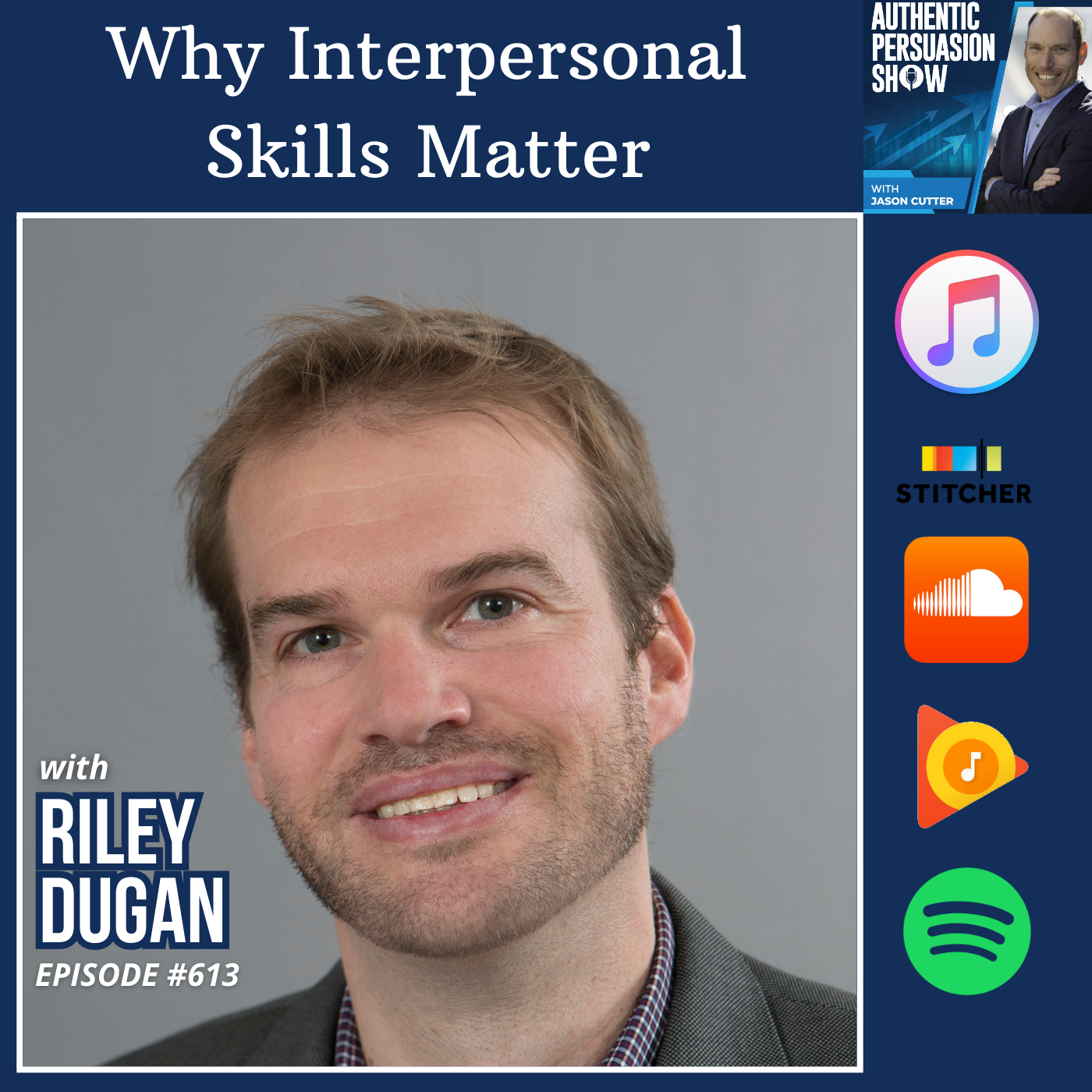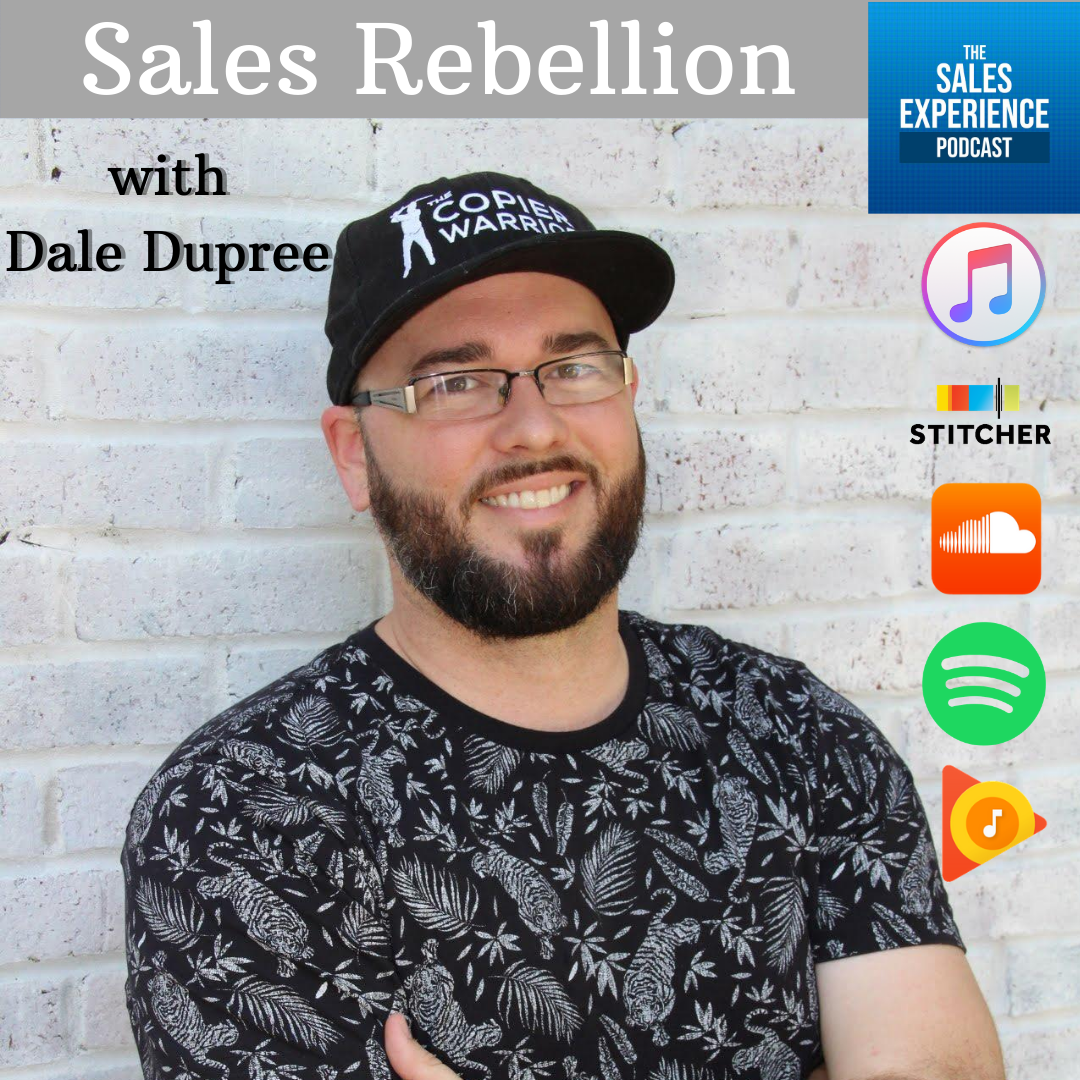Episode Transcript
Jason [00:00:00]:
This is the authentic persuasion show. I want to share something that happened recently when working with a client in some sales training. So to set the framework of what was going on with the training, it was a retail company that's doing some custom lighting for people at their home. And so ticket price, nothing too crazy, but something that's significant also. Something that's not a necessity, it's not something that's required. It's not something that someone would need to do. It's a want to do.
Jason [00:00:39]:
It is a nice to have. It is a benefit. It's what you do if you have a house and you have a setup and you want to make it nicer and or you want to make it good from a lighting standpoint to have parties or just for yourself or impress your friends and neighbors or keep up with the Joneses or beat the Joneses. And so it's one of those things where they're selling something that is a nice to have, not a need to have, not something that actually solves a problem, but something that helps somebody from a positive standpoint. And it's interesting, and this is not the point of what I want to talk about today, but it's interesting because again, I mention this all the time, where a lot of people in sales think their job is to solve problems. And yes, you got to solve problems. Depends on what a problem covers and what problem means. A lot of people think, oh, their goal is to find the pain and then solve that pain.
Jason [00:01:29]:
And it's like, okay, but what pain is going to be there in a situation where you're selling something that is a want to have and a nice to have, but not a need to have. It's easy when you're selling something that's a need to have or when the ideal person to buy from you is truly in pain or struggling. Like when I've dealt with people who have credit card debt and it's obvious and they're struggling and they're in pain and they have hopes for gain as well. So anyway, back to this client. In this situation, we were doing some sales training. One of the things is the people on the team know what they're doing. And I see this a lot, especially with companies that bring me in where the people on the team have been there for some time. Everyone knows what they're doing and how to do it and the basics of it and even some pro level stuff.
Jason [00:02:17]:
I constantly work with teams where the newest person on the team might be over a year since they were hired on the team, it's not like they just started last week and they have no idea what they're doing. Usually it's teams where they're hitting a point, where they hit a plateau, or they just want to help their team get better and better. What I've found is that people who win or want to win or are used to winning, want to make sure that they're always winning and always staying ahead. Right? Like championship teams spend more to keep on top. I don't have the exact reference or stats, but I know at the height of Tiger woods in his golfing championship run that he had, he had like seven different coaches, from mindset to financial to business, to putting coach to swing, coach to drive coach. Winners want to win more. And so I see that a lot where it's not just because everything is going wrong, but it's also just because teams want to do better. And so for this client, we're doing the training.
Jason [00:03:16]:
And one of the biggest things was when I shared my authentic persuasion pathway, which is the framework to get somebody from prospect to customer, to move them out of their comfort zone and get them to embrace change and understand change and accept the risks of buying something that they're not familiar with, which is so dangerous. And I've talked about it a lot of times on the podcast here, but when you do that, then you have a customer, right? You've got to move somebody out of their comfort zone into that. A lot of people in sales, they have some basic frameworks. They have the ideas of how it works. They have what they think they should do to make that work, and then they just go out there and they semi wing it. Sometimes it's the classic salesperson, which is, I don't like scripts, I don't like processes. Just let me do what I do best. I like talking to people.
Jason [00:04:06]:
I'm good at talking to people, and I'm good at overcoming objections, and I'm good at convincing people to buy. Right? That same kind of person is always the one who says, people don't like to buy, they like to be sold because they think their job is to sell people, and they think people actually enjoy that, which is a topic of another podcast. Maybe I'll do that for next week's episode. Why that is so absolutely wrong. And so the thing is that a lot of people in sales, especially if you've been doing it for a while, you know the basics, you know how to do it, you know how to get results. The challenge comes in is the consistency. And this is where one of the biggest light bulbs that went off for this team was having a consistent process, and not just having a consistent process, because the manager or the owner or someone says, here is our process. Here's what you do.
Jason [00:04:56]:
You say this, and then you move to this stage here and ask questions, and then you move to this stage here, and you tell them what we're going to do. And then you move to this stage here and ask for the sale, and then you get the payment and so on. Right? I'm not talking about, like, a sales process handed down from above where you're just supposed to follow it. And very few people do follow what they're told. They think they know better or they want to do it their own way, which customizing is good, but if there's a formula that works, then use it. It's really the difference between baking and cooking. Right. A lot of people in sales, they want to cook, which means they just grab all the ingredients they can and throw it in there and they know where they want to go with it, and they'll see what happens with it.
Jason [00:05:37]:
Right. Baking is you better measure, you better follow precisely, you better get the timing right, or that cake will not be a good cake. Right? Like, if you just wing it when baking, it's a good chance it's not going to be very good, whatever it is that you're making, unless you're just doing basic cookies. But even that, if you don't measure things and you just throw some things in the bowl, mix it up, and then throw it in the oven and see what happens, and you try a different temperature each time, I promise it's going to be terrible. And so salespeople do that. And when managers try to give them a process, it doesn't always work. They don't stick to it. And then in this case here, it's outside sales.
Jason [00:06:11]:
So it's people in somebody's home, which means there's no call recording, there's no oversight, there's no sticking to a script or a process or a plan. It's tough to do that when face to face, because are you going to have your script in front of you or you're going to have your outline and checklist and make sure you go through it? Yes. If you were me and if I was running things, yes. But that's not what most people want to do. And so, again, back to what was really valuable for this team is that when I shared my authentic persuasion pathway, what happened was that became the understanding and fundamentals and the ways to put what they were doing into place in a certain order and for them to have a shared language, a shared language between the salespeople and then also with the manager, where the manager can hold them accountable to the stages. Because here's the thing, right? As much as I love scripts, as much as I'm a process person first and I love systems and doing things consistently, you're a human having a conversation with another human, and based on that as the conversation and what you're doing, you can't script it all. You can't have a system and process. You can hope for it, you can try, but you can't control things enough where you can dictate everything that happens, what's said, how they respond, how you move people forward, just doesn't work that way.
Jason [00:07:35]:
You can't do it right. What you can do is you can have the main processes in place, you can have the pillars, the milestones that you need to hit as you go through your process, and you can control that, what you do and how you move from stage to stage, and you can be in control of the stages, of the milestones and the process in between. And then in there, you can have the goal of what you want to do within that stage and that milestone, and then the rest of it is going to be a fluid conversation where you know where you want to get to in that stage, in that conversation, in that part of it. And then obviously, that's one part of a five part process and framework, which is the authentic persuasion pathway, where the end result is having a client, having a new customer. And so what was great about this and what was so fun was that they saw that and they got to understand that. And it wasn't about me telling them, like, say this here and do this here. It's, here's the process. Here's how you move a human forward in a sales conversation.
Jason [00:08:41]:
And then based on that, you plug in what you're already doing. That works well in each of those categories. I'm not here to tell you how to build rapport. I'm here to tell you you want to do that. And then the stuff that you like to do about talking about yourself, don't do that until the third stage. Like wait for that and do some other things first before you start talking about yourself and giving them that framework was so big. And what happens? We did training one week and then the next week I went back and we did the second training and the feedback was great. And again, it wasn't revolutionary.
Jason [00:09:13]:
This isn't a new concept. There's really nothing new out there in the world. But the biggest difference was now they had a framework that they could own a foundation, and then they could layer on their other stuff and then still do things how they want to do. Which is the whole key with authentic persuasion, is for you to be you in a process, but having a system. And then they were actually able to get different results, better results, and consistent results. And consistent results. In conversations where there was a limited timeline, imagine you have a 1 hour appointment with somebody. That's your main appointment.
Jason [00:09:49]:
That's pretty much your only shot. You have to control that. So you get everything done in your mental and physical checklist. You have to have a process, but it has to be fluid enough for every situation to be different and every human to be different. And so the big thing with this, make sure that you have a process in place. Make sure you understand the big rocks, right, the milestones and the stages of your sales process, like what is in the authentic persuasion pathway and the five stages it takes to get someone to move forward. Then you can layer on the other parts, right? And it will take the pressure off you feeling like you have to control everything and script everything. You just have to control those stages and milestones and then move things forward.
Jason [00:10:31]:
And I promise when you do that, you will get different results, and sales will be much simpler, not always easier, but it'll be simpler, because now you know what you're doing, and now you know the process you're going through with somebody. And then it's just about execution, and then it's about execution consistently and then improving constantly so that you can just keep getting better and better results out of the same number of conversations.
![[635] How to Close More Deals By Being Consistent](https://episodes.castos.com/salesexperiencepodcast/images/1539665/How-to-Close-More-Deals-By-Being-Consistent.png)


